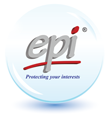5 Data Center Operations Maturity Levels
The DCOS® (Data Centre Operations Standard) benchmarks the data center operations maturity at 5 easy-to-understand levels;

DCOS-1 – has no or little documentation, monitoring, training and processes
DCOS-2 – has processes available but they are often undocumented with a high reliance on personnel
DCOS-3 – has standardized and documented processes and procedures
DCOS-4 – has processes which are measured and controlled with continuous improvement programs
DCOS-5 – has fully integrated processes with continuous improvement programs
There are 11 disciplines critical to the data center operations. DCOS-1 to DCOS-4 are applicable at the individual discipline level. DCOS-5 represents the highest level operations maturity where all 11 disciplines are fully managed and integrated. DCOS-5 represents a highly efficient operations team with the lowest level of risk. Most data centers set the maturity target for the initial audit at DCOS level 3 on selected disciplines.
The following paragraphs describe, at a high level, the requirements for meeting the respective DCOS maturity levels.
DCOS-1
The organization usually does not provide a stable environment to support processes. There are no, or very little, standardized processes. Success in these organizations depends on the competence and heroics of the people in the organization and not on the use of proven processes. Staff is often not familiar with the corporate and/or departmental goals and objectives. Little to no documentation exist and is not under document management control. No formal training is conducted and staff is expected to mostly educate themselves. Monitoring is not available or is very limited.
DCOS-2
The organization relies heavily on people rather than process leading in general to a relative higher risk for errors. Process execution have a regular pattern which is not determined by process description but by the nature of operations in which staff behave and operate in a reasonable similar fashion. There is limited documentation available which is not under full document management control but might use versioning. Training is informal and on demand rather than well planned. Monitoring is not available or limited.
NOTE: A critical distinction between DOCS-1 and DCOS-2 is that there is some level of informal, non-written process with a higher degree of consistency in its execution.
DCOS-3
Processes are defined and documented at the high level. Procedures might not be described in detail leading to interpretation of the individual therefore some deviations might occur during execution of these processes. Documents are available and have some level of document management control. Training is more formal but might be generic for all. Monitoring is used in its basic form to support some of the processes.
NOTE: A critical distinction between DCOS-2 and DCOS-3 is that processes are described and processes are managed more proactively.
DCOS-4
Processes are clearly defined and provide predictable process performance. The defined processes clearly states the purpose, inputs, entry criteria, activities, roles, measures, verification steps, outputs, and exit criteria. Staff have been trained on the processes and sub processes. Processes are monitored and measured for compliance and conformity and action is taken to improve the process where processes/procedures appear not to be working effectively. Staff training is pro-active and regular refresh is provided to ensure optimum performance. Monitoring is used to support the processes.
NOTE: A critical distinction between DOCS-3 and DCOS-4 is the predictability of process performance and continues improvement cycle.
DCOS-5
Processes are closely aligned with the business strategy. The organization continually improves its processes based on business objectives and performance needs by continually improving process performance through incremental and innovative process and technological improvements. Staff training is well planned and pro-active with regular refresh to ensure optimum performance. Monitoring is used at an integrated level to support the overall business. All processes should be under full management control and fully integrated.
NOTE: A critical distinction between DCOS-4 and DCOS-5 is the focus on managing and improving organizational performance and having fully integrated process across the whole organization and all its processes (11-Disciplines)
The table below provides a quick reference overview only.

Find out more
DCOS® | DCOS Audit & Certification
Questions? 














